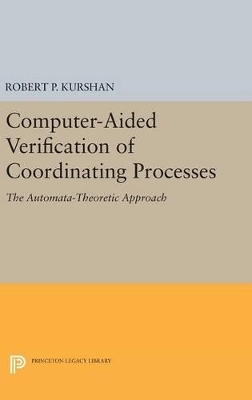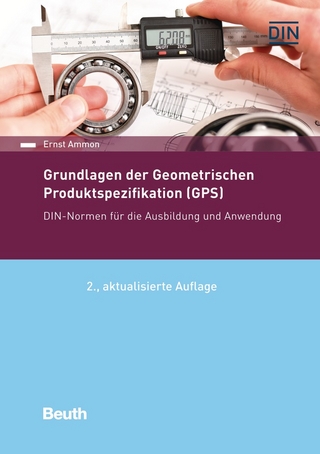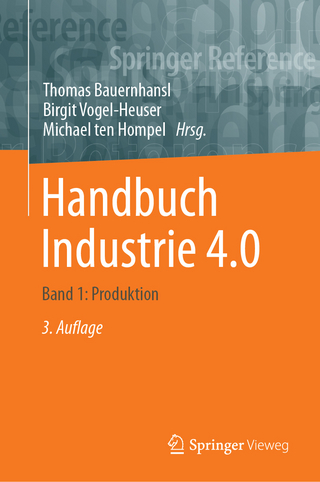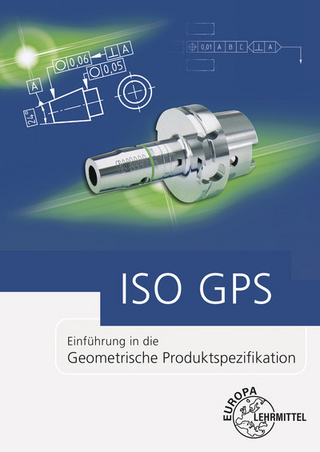
Computer-Aided Verification of Coordinating Processes
The Automata-Theoretic Approach
Seiten
2016
Princeton University Press (Verlag)
978-0-691-63489-0 (ISBN)
Princeton University Press (Verlag)
978-0-691-63489-0 (ISBN)
- Lieferbar (Termin unbekannt)
- Versandkostenfrei innerhalb Deutschlands
- Auch auf Rechnung
- Verfügbarkeit in der Filiale vor Ort prüfen
- Artikel merken
Formal verification increasingly has become recognized as an answer to the problem of how to create ever more complex control systems, which nonetheless are required to behave reliably. To be acceptable in an industrial setting, formal verification must be highly algorithmic; to cope with design complexity, it must support a top-down design methodology that leads from an abstract design to its detailed implementation. That combination of requirements points directly to the widely recognized solution of automata-theoretic verification, on account of its expressiveness, computational complexity, and perhaps general utility as well. This book develops the theory of automata-theoretic verification from its foundations, with a focus on algorithms and heuristics to reduce the computational complexity of analysis. It is suitable as a text for a one-or two-semester graduate course, and is recommended reading for anyone planning to use a verification tool, such as COSPAN or SMV.
An extensive bibliography that points to the most recent sources, and extensive discussions of methodology and comparisons with other techniques, make this a useful resource for research or verification tool development, as well. Originally published in 1995. The Princeton Legacy Library uses the latest print-on-demand technology to again make available previously out-of-print books from the distinguished backlist of Princeton University Press. These editions preserve the original texts of these important books while presenting them in durable paperback and hardcover editions. The goal of the Princeton Legacy Library is to vastly increase access to the rich scholarly heritage found in the thousands of books published by Princeton University Press since its founding in 1905.
An extensive bibliography that points to the most recent sources, and extensive discussions of methodology and comparisons with other techniques, make this a useful resource for research or verification tool development, as well. Originally published in 1995. The Princeton Legacy Library uses the latest print-on-demand technology to again make available previously out-of-print books from the distinguished backlist of Princeton University Press. These editions preserve the original texts of these important books while presenting them in durable paperback and hardcover editions. The goal of the Princeton Legacy Library is to vastly increase access to the rich scholarly heritage found in the thousands of books published by Princeton University Press since its founding in 1905.
Preface1Introduction32Boolean Algebra313L-matrix454L-language515String Acceptors636[omega]-theory: L-automaton/L-process777The Selection/Resolution Model1098Reduction of Verification1539Structural Induction20310Binary Decision Diagrams215Appendices231Bibliography241Glossary263Index264
| Erscheinungsdatum | 27.05.2016 |
|---|---|
| Reihe/Serie | Princeton Legacy Library |
| Verlagsort | New Jersey |
| Sprache | englisch |
| Maße | 152 x 229 mm |
| Gewicht | 567 g |
| Themenwelt | Informatik ► Weitere Themen ► CAD-Programme |
| Mathematik / Informatik ► Mathematik ► Analysis | |
| Technik ► Elektrotechnik / Energietechnik | |
| Technik ► Maschinenbau | |
| ISBN-10 | 0-691-63489-0 / 0691634890 |
| ISBN-13 | 978-0-691-63489-0 / 9780691634890 |
| Zustand | Neuware |
| Haben Sie eine Frage zum Produkt? |
Mehr entdecken
aus dem Bereich
aus dem Bereich
Buch | Softcover (2023)
Beuth (Verlag)
99,00 €
Einführung in die Geometrische Produktspezifikation
Buch | Softcover (2023)
Europa-Lehrmittel (Verlag)
20,70 €


